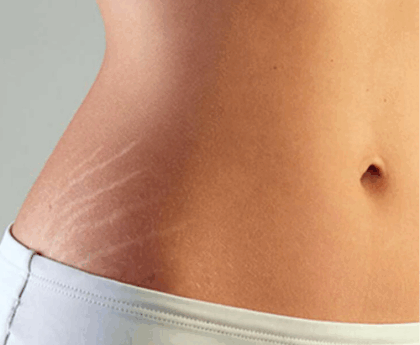Can You Lose Weight on the Mediterranean Diet? A Complete Guide
Can You Lose Weight on the Mediterranean Diet? The Mediterranean Diet has gained global recognition for its numerous health benefits, from heart health to longevity. But one of the most common questions people ask is: “Can you lose weight on the Mediterranean Diet?” The short answer is yes, but the long answer involves understanding how the diet works, what foods it emphasizes, and how to implement it for effective weight loss.
In this ultimate guide, we’ll break down everything you need to know about losing weight on the Mediterranean Diet, including its principles, scientific evidence, practical tips, and common mistakes to avoid.
Table of Contents
- What Is the Mediterranean Diet?
- How the Mediterranean Diet Promotes Weight Loss
- Scientific Evidence Supporting Weight Loss on the Mediterranean Diet
- Core Components of the Mediterranean Diet for Weight Loss
- Sample Mediterranean Diet Meal Plan for Weight Loss
- Pros and Cons of Using the Mediterranean Diet for Weight Loss
- Common Mistakes to Avoid
- Frequently Asked Questions
- Final Thoughts
Get to Know 👈👇
https://sutor.store/product/mediterranean-diet/

1. What Is the Mediterranean Diet?
The Mediterranean Diet is a traditional way of eating inspired by the dietary patterns of countries bordering the Mediterranean Sea, such as Greece, Italy, and Spain. It is characterized by:
- High consumption of fruits, vegetables, whole grains, legumes, and nuts.
- Healthy fats, primarily from olive oil.
- Moderate intake of fish and poultry.
- Low consumption of red meat and processed foods.
- Occasional red wine in moderation.
- Focus on physical activity and social meals.
Unlike restrictive diets that eliminate entire food groups, the Mediterranean Diet is more of a lifestyle, promoting balance and sustainability.
2. How the Mediterranean Diet Promotes Weight Loss
2.1. Nutrient Density Over Calorie Density
The Mediterranean Diet emphasizes whole, unprocessed foods that are naturally low in calories and high in fiber, vitamins, and minerals. These foods increase satiety, helping you feel full longer, and reduce the likelihood of overeating.
2.2. Healthy Fats Boost Satiety
Healthy fats, especially from extra virgin olive oil, avocados, and nuts, are a staple in this diet. These fats promote satiety and reduce the urge to snack on high-calorie processed foods.
2.3. High Fiber Intake
Whole grains, legumes, fruits, and vegetables are all high in dietary fiber, which slows digestion and helps regulate blood sugar levels. Stable blood sugar reduces hunger pangs and cravings.
2.4. Lean Proteins Support Muscle Mass
Fish, poultry, legumes, and dairy provide adequate protein, essential for maintaining lean muscle mass during weight loss.
2.5. Encourages Physical Activity
The Mediterranean lifestyle promotes regular physical activity, whether it’s walking, swimming, or gardening, which is critical for burning calories and maintaining a healthy metabolism.
3. Scientific Evidence Supporting Weight Loss on the Mediterranean Diet
Numerous studies have investigated the Mediterranean Diet’s role in weight management.
3.1. The PREDIMED Study
One of the most significant studies, the PREDIMED (Prevención con Dieta Mediterránea) study, involved over 7,000 participants at high cardiovascular risk. The study found that participants following the Mediterranean Diet supplemented with olive oil or nuts experienced significant reductions in weight gain and central obesity compared to a control group on a low-fat diet.
3.2. Meta-Analyses and Systematic Reviews
A 2019 meta-analysis published in Nutrients examined 13 randomized controlled trials and found that the Mediterranean Diet led to significant weight loss and reductions in body mass index (BMI) compared to control diets.
3.3. Other Research Findings
Additional research suggests that the Mediterranean Diet improves metabolic health markers such as insulin sensitivity and cholesterol levels, which indirectly support weight loss and weight maintenance.
4. Core Components of the Mediterranean Diet for Weight Loss
To optimize weight loss on the Mediterranean Diet, it’s important to focus on specific food groups and dietary behaviors.
4.1. Focus on Plant-Based Foods
Fill your plate with:
- Leafy greens (spinach, kale)
- Root vegetables (carrots, beets)
- Legumes (chickpeas, lentils)
- Whole grains (quinoa, farro)
4.2. Prioritize Healthy Fats
Use extra virgin olive oil as your main fat source and incorporate:
- Avocados
- Nuts (almonds, walnuts)
- Seeds (chia, flaxseed)
4.3. Choose Lean Proteins
- Fish (salmon, sardines) 2-3 times per week
- Poultry (chicken, turkey)
- Plant-based proteins (tofu, tempeh)
4.4. Limit Processed Foods
Avoid or minimize:
- Processed meats
- Refined grains
- Sugary snacks and beverages
4.5. Incorporate Dairy in Moderation
- Greek yogurt
- Feta cheese
- Ricotta
4.6. Enjoy Alcohol Sparingly
A small glass of red wine with meals is acceptable but not necessary for weight loss.
5. Sample Mediterranean Diet Meal Plan for Weight Loss
Here’s a practical 7-day Mediterranean Diet meal plan designed to promote weight loss.
Day 1
- Breakfast: Greek yogurt with berries and chia seeds.
- Lunch: Chickpea salad with cucumbers, tomatoes, and feta.
- Dinner: Grilled salmon with quinoa and roasted vegetables.
- Snack: A handful of almonds.
Day 2
- Breakfast: Oatmeal with sliced banana and walnuts.
- Lunch: Whole grain wrap with hummus, spinach, and grilled chicken.
- Dinner: Baked cod with lentils and sautéed greens.
- Snack: Apple slices with almond butter.
(Continue similar meal patterns for Days 3-7)
Tip: Portion control is key. Even healthy fats are calorie-dense.
6. Pros and Cons of Using the Mediterranean Diet for Weight Loss
6.1. Pros
✅ Sustainable: No food group is entirely off-limits.
✅ Scientifically proven: Backed by decades of research.
✅ Heart-healthy: Reduces cardiovascular risk factors.
✅ Diverse: Wide variety of flavors and meal options.
6.2. Cons
❌ May require meal planning: To ensure proper macronutrient balance.
❌ Possible overconsumption of fats: Leading to slower weight loss if not mindful.
❌ Slow results: Not a quick-fix diet; gradual, sustainable weight loss.
7. Common Mistakes to Avoid When Using the Mediterranean Diet for Weight Loss
7.1. Overeating Healthy Fats
While olive oil and nuts are healthy, they are also calorie-dense. Be mindful of portions.
7.2. Ignoring Portion Control
Even healthy foods can lead to weight gain if eaten in excessive quantities.
7.3. Not Exercising
The Mediterranean Diet is part of a holistic lifestyle. Physical activity is crucial for weight loss.
7.4. Misinterpreting the Diet
Adding pasta and wine to every meal doesn’t make it Mediterranean! Focus on the core principles.
7.5. Consuming Too Many Processed Foods
Stick to whole, minimally processed foods for best results.
8. Frequently Asked Questions
8.1. How much weight can I lose on the Mediterranean Diet?
Weight loss varies depending on caloric intake, activity level, and adherence to the diet. On average, individuals can expect to lose 0.5 to 1 kg (1 to 2 pounds) per week with consistent effort.
8.2. Is the Mediterranean Diet low-carb?
Not necessarily. The Mediterranean Diet includes whole grains, legumes, and fruits. However, it limits refined carbohydrates and sugars.
8.3. Do I need to count calories on the Mediterranean Diet?
While calorie awareness is important, strict calorie counting is not required. Emphasizing portion control and nutrient-dense foods is often sufficient for weight loss.
8.4. Can vegetarians follow the Mediterranean Diet?
Yes! The diet’s focus on plant-based foods makes it ideal for vegetarians. Replace fish and poultry with plant-based proteins like legumes and tofu.
8.5. Is exercise necessary?
Absolutely. Physical activity complements dietary changes and enhances weight loss and overall health.
9. Final Thoughts: Can You Lose Weight on the Mediterranean Diet?
So, can you lose weight on the Mediterranean Diet? The answer is a resounding yes!
By emphasizing whole, nutrient-dense foods, promoting healthy fats, and encouraging an active lifestyle, the Mediterranean Diet offers a sustainable approach to weight loss and long-term health. Unlike fad diets, it does not rely on extreme restrictions but instead fosters a balanced relationship with food.
Key Takeaways:
- Prioritize whole, plant-based foods.
- Control portions, especially of calorie-dense fats.
- Incorporate regular physical activity.
- Enjoy the journey—Mediterranean living is about savoring food and life!
Related Posts:
- Top 10 Mediterranean Diet Recipes for Weight Loss
- Mediterranean Diet vs Keto: Which Is Better for Weight Loss?
- How to Start the Mediterranean Diet: A Beginner’s Guide
- How to Lose Weight Fast?
Optimize Your Health Today!
If you’re ready to embrace a healthy, sustainable lifestyle, the Mediterranean Diet might be exactly what you need. Start by making small changes—switching to olive oil, adding more vegetables, or walking daily—and gradually build habits that will support your weight loss goals and overall well-being.





